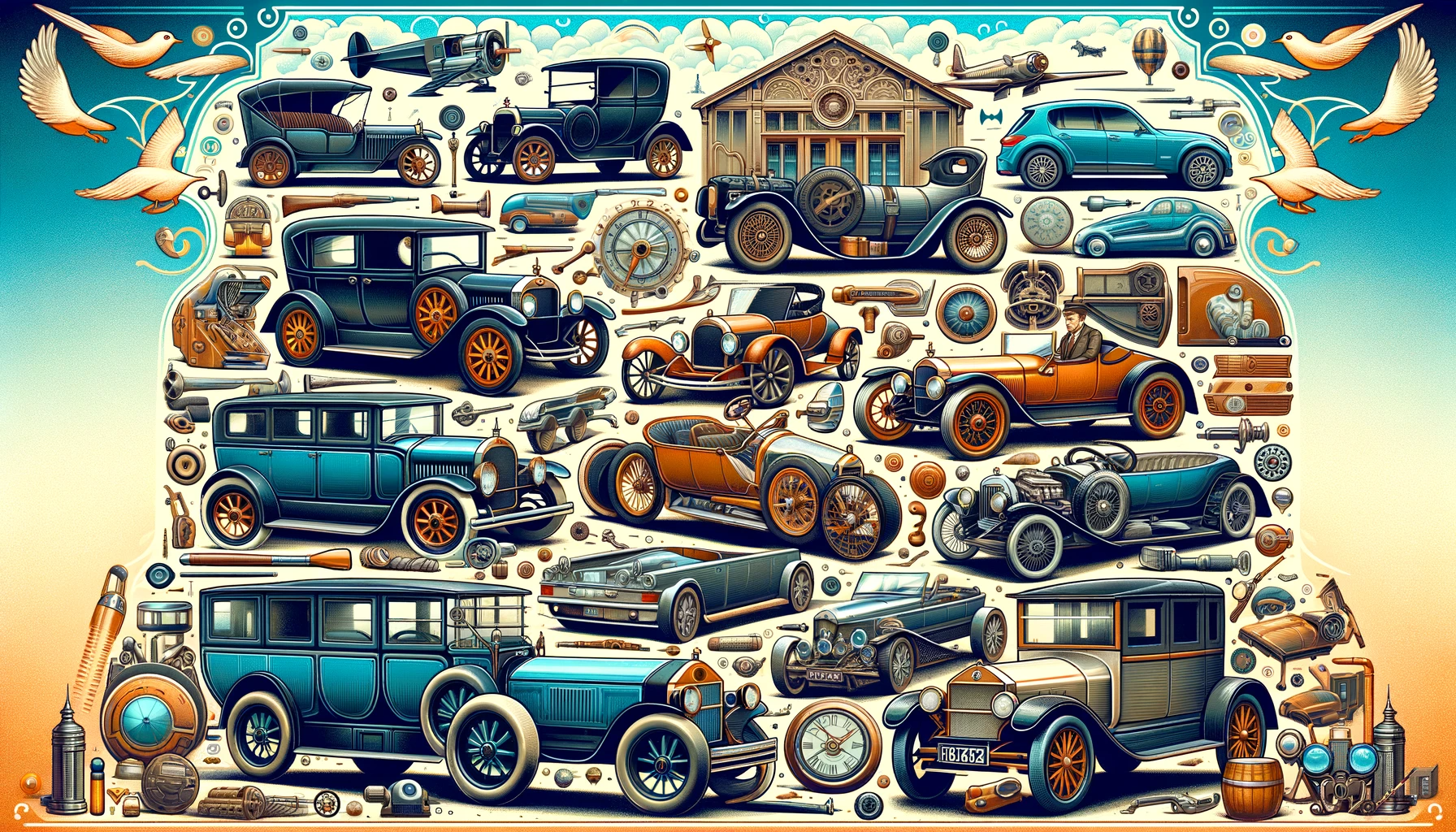The history of cars began in the late 19th century and has experienced a variety of technological innovations and social changes up to the present day. Below is an overview of the history of cars.
Index
Early Development
The Age of Invention (Late 1800s): The history of automobiles dates back to 1769 when Nicolas-Joseph Cugnot invented a steam-powered vehicle, but the practical development of cars began in the late 19th century.
Karl Benz made a three-wheeled vehicle with a gasoline engine in 1886, which is considered the world’s first practical automobile.
Innovations in the Early 20th Century
The Introduction of Model T (1908): Henry Ford introduced the Model T to the market.
Ford introduced mass production techniques (assembly line), making automobiles more affordable and accessible to the general public.
This transformed cars from luxury items to everyday means of transportation.
Mid-Century Development
Post-WWII Boom (Post-1945): After World War II, along with economic recovery, the automobile industry also grew.
America, Europe, and later Japan led the mass production of cars, and vehicles became more common in households.
Evolution of Design and Performance
1960s–1970s: This era saw significant innovations in design and performance.
Sports cars and luxury vehicles gained popularity, and there was a focus on improving safety and fuel efficiency.
Environmental Consideration
1980s–1990s: With the rising awareness of environmental issues, fuel-efficient cars and technologies to reduce emissions gained attention.
During this period, research and development of hybrid and electric vehicles advanced.
Latest Trends in the 21st Century
Autonomous Driving Technology and Electrification: Entering the 21st century, autonomous driving technology and electrification (electric and hybrid vehicles) became major trends in the automotive industry.
Newcomers like Tesla Motors entered the market, bringing significant transformations to the automotive industry.
Society and Automobiles
Cultural Impact: Throughout the 20th century, automobiles had a significant impact on people’s lifestyles, urban planning, and culture.
The proliferation of cars spurred the development of suburbs and expanded people’s living areas.
Looking to the Future
Sustainability and Innovation: In the modern era, the automotive industry continues to evolve towards sustainability, environmental consideration, and exploring new modes of transportation (for example, autonomous vehicles and shared economy models).
Thus, the history of automobiles is a product of the interaction between technological innovation, social change, and cultural impact, playing an important role in modern society.
The evolution of cars towards the future will continue to advance to a new stage while balancing environmental considerations and technological innovations.
